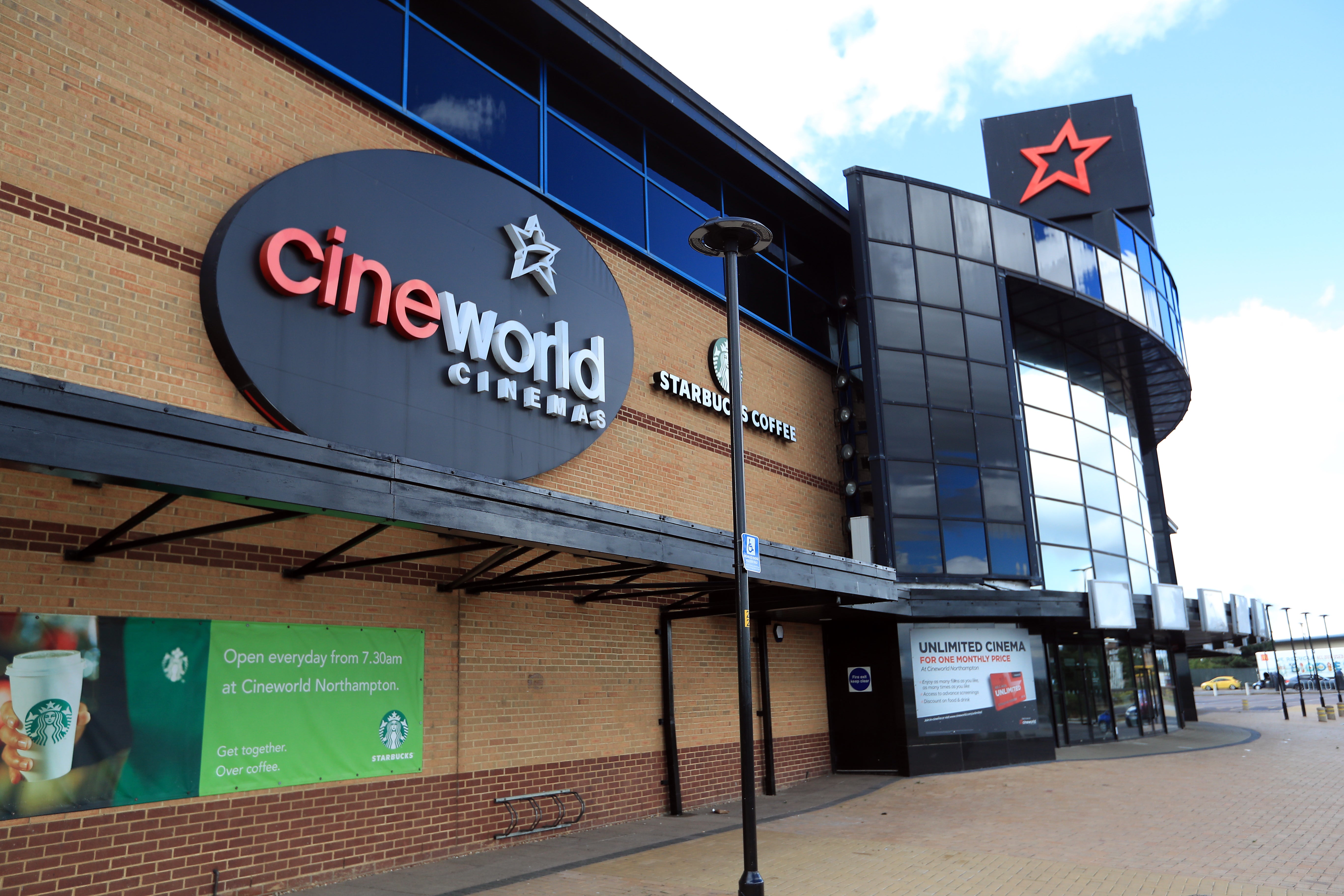Cineworld hikes ticket prices by 40% since reopening
The cinema chain, which also owns Picturehouse, revealed sales remain well down due to the Covid restrictions impacting openings and new releases.

Cineworld and Picturehouse cinemas hiked the average price of tickets by more than 40% since screens reopened as Covid-19 restrictions eased.
The revelation comes as bosses at the chain revealed the top performing movies of the year so far were Peter Rabbit 2, A Quiet Place Part II and The Conjuring: The Devil Made Me Do It grossing just 49.4 million dollars (£35.6 million).
But it was significantly down on the 103.6 million dollars (£74.7 million) made by the biggest films in the first half of 2020, with movie studios holding back major releases until more clarity on the pandemic was known.
In the UK, Cineworld said the first six months of the year saw admissions hit just 2.6 million, down from 9.6 million in the same period in 2020, with box office sales down 61.9% to 30.2 million dollars (£21.8 million), despite the hike in ticket prices.
Announcing its results to the stock exchange, the company said the average ticket price rise “was driven by a mix of customer behaviour and timing of film releases”.
It added: “The decrease in admissions was due to the impact of the temporary closure of our cinemas for significant periods during the six months ended June 30 2021 and June 30 2020, as well as a lack of major film releases as distributors delayed the release of major titles due to the Covid-19 pandemic.”
Retail revenue from sales of popcorn and drinks also dropped 56.1% to 12.9 million dollars (£9.3 million) although the average spend per customer was up 62%, suggesting hardcore fans were willing to spend more to get back in front of a big screen after so many lockdowns.
Cineworld and the sector more widely has been one of the hardest hit in the economy, with studios delaying release dates or bringing out movies straight to streaming services.
Screens were one of the last places to reopen fully following Covid restrictions, with customers only allowed back, in reduced numbers, from May.
The company, which also owns Regal Cinemas in the US, came close to collapse in November after running out of money, before securing a series of new loans.
Cineworld also faced a backlash from shareholders over plans for a £65 million bonus package for two executives, despite the financial difficulties.
Globally, the chain said admissions in the six months to the end of June were 14.1 million, 70% down on the same period last year, which also included periods of closure due to Covid.
Bosses said there was a “material uncertainty” around the company’s ability to continue if further lockdowns continued, as they would breach banking covenants on loans due next summer.
They added that plans are under way for a possible US listing of the business, in the hope to tap into more cash from investors stateside.
Total revenues in the first half dropped 49% to 292.8 million dollars (£211.2 million) compared with the same period a year ago.
Although, pre-tax losses narrowed from a huge 1.6 billion dollars (£1.2 billion) in the first half of 2020 to 576.4 million dollars (£415.8 million) in the current period.
Julie Palmer, partner at insolvency expert Begbies Traynor, said continued restrictions and a lack of willing on the part of cinemagoers means that cinemas are lagging behind in the economic recovery and will have to start thinking of different ways to recover.
She added: “Recently it has felt as if Cineworld, and others in the sector, were pinning their hopes too tightly to the release of summer blockbuster films but these are not for everyone.
“The pandemic has stalled the pipeline of many lower-budget films creating a dearth of range.”